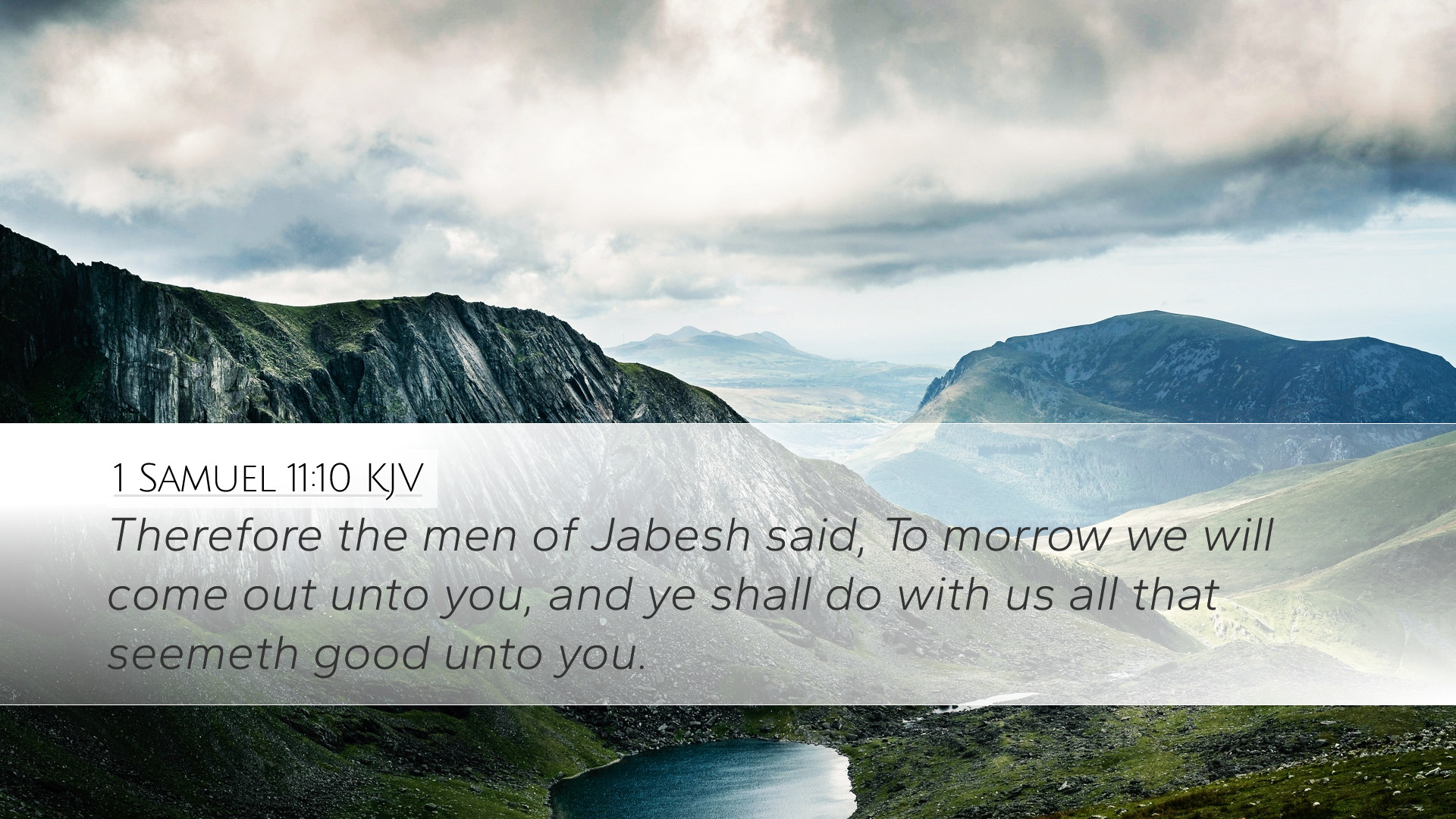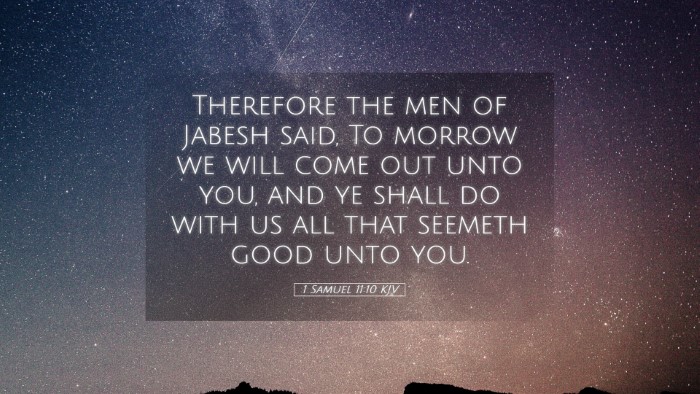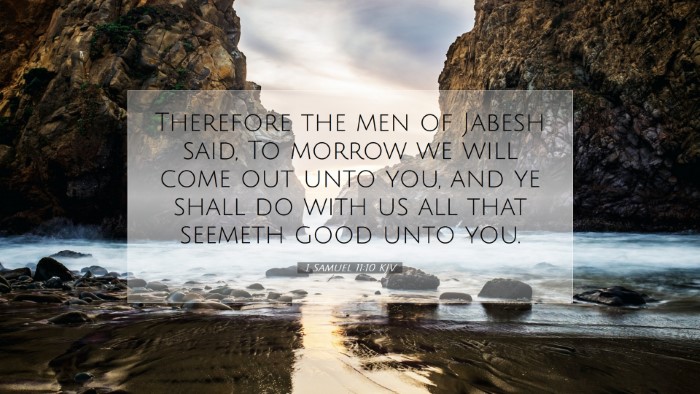Commentary on 1 Samuel 11:10
Verse Reference: 1 Samuel 11:10 - "Therefore the men of Jabesh said, ‘Tomorrow we will come out to you, and you may do with us whatever seems good to you.’"
Contextual Overview
The events of 1 Samuel 11 take place shortly after Saul is anointed king of Israel. The Ammonites, led by Nahash, threaten the city of Jabesh-Gilead, demanding humiliation and servitude from the inhabitants. This dire situation prompts the elders of Jabesh to seek a delay, hoping for rescue. This verse marks a pivotal moment, highlighting both despair among the people and Saul's emerging leadership.
Theological Insights
In this verse, we observe the themes of fear and resignation, which are prevalent in the narrative. The response of the men of Jabesh illustrates the dire straits faced by the Israelites. The willingness to submit to their oppressors reflects a lack of hope, showing how dire situations can lead to a sense of hopelessness among God’s people.
Spiritual Reflection
This passage reminds us of human vulnerability and the tendency to give in to despair when faced with insurmountable odds. It calls us to consider how moments of trial can test our faith in God’s providence. In light of this circumstance, believers are encouraged to reflect on their own responses in times of crisis.
Commentary Insights
Matthew Henry's Commentary
Matthew Henry emphasizes the desperation of the Jabeshites as they confront the brutal demands of Nahash. He notes that their response comes from a place of fear and oppression, recognizing their predicament yet showing a readiness to submit. Henry posits that this submissive act illustrates the weakness of the people at that moment, who are unaware that deliverance is imminent with the anointing of Saul.
Albert Barnes' Notes on the Bible
Barnes focuses on the strategic nature of the Jabeshites' response. By requesting a delay, they demonstrate a glimmer of hope or a tactical approach in their dealings. However, their phrasing, "do with us whatever seems good to you," indicates a profound surrender to despair. Barnes suggests that this incident highlights the importance of divine intervention, exemplified shortly afterward by Saul’s rise to leadership.
Adam Clarke's Commentary
Clarke delves into the cultural context of the narrative, suggesting that the men of Jabesh's willingness to submit could be a common practice in warfare, where negotiating terms was sometimes preferable to outright defeat. He also views this as a significant moment leading to Saul’s validation as king, suggesting that their situation necessitated a leader who understood both their plight and the weight of divine authority.
Exegetical Analysis
In exegeting 1 Samuel 11:10, one must consider the literary and historical backdrop. The phrase "do with us whatever seems good to you" reflects not only resignation but also strategic submission in the face of aggression. It serves as a commentary on human nature under duress and the need for leadership and intervention. The text invites further exploration into the character of Saul, who soon offers hope and deliverance, which contrasts sharply with the despair expressed by the Jabeshites.
Leadership and Salvation
This moment sets the stage for Saul's emergence as a leader in Israel. His subsequent actions reveal a turn of the tide, showcasing the theme of salvation and divine rescue. The proclamation of the Jabeshites speaks to broader themes in scripture regarding submission to authority and the quest for hope amid hopelessness.
Practical Application
For pastors, students, and scholars, 1 Samuel 11:10 serves as a poignant reminder of the human condition—a mix of faith and fear. Here are some reflective queries and applications:
- Human Response to Crisis: How do we, as individuals and as a community, respond when faced with insurmountable challenges?
- Leadership in Times of Trouble: What can we learn about godly leadership from Saul’s rise and the responses of the Jabeshites?
- Hope Amid Despair: In what ways can we cultivate hope and trust in God during our own trials and tribulations?
- Divine Sovereignty: How can we better understand and trust in God's hand at work even in our darkest moments?
Conclusion
1 Samuel 11:10 provides a rich tapestry of theological insights and practical lessons that resonate throughout the history of God’s people. The hearts of the men of Jabesh show how fear can drive decisions, yet it is in these challenging moments that God raises leaders to deliver His people. This passage not only reflects the realities of despair but also serves as a precursor to God’s salvation through appointed leaders, ultimately pointing towards the hope laid out in the broader narrative of Scripture.


